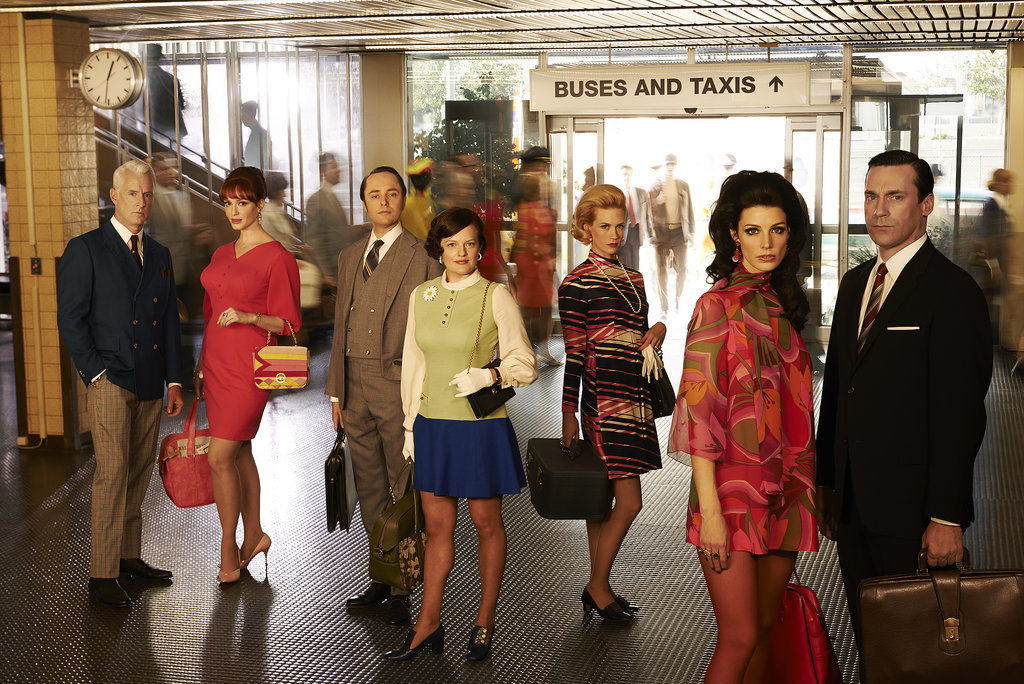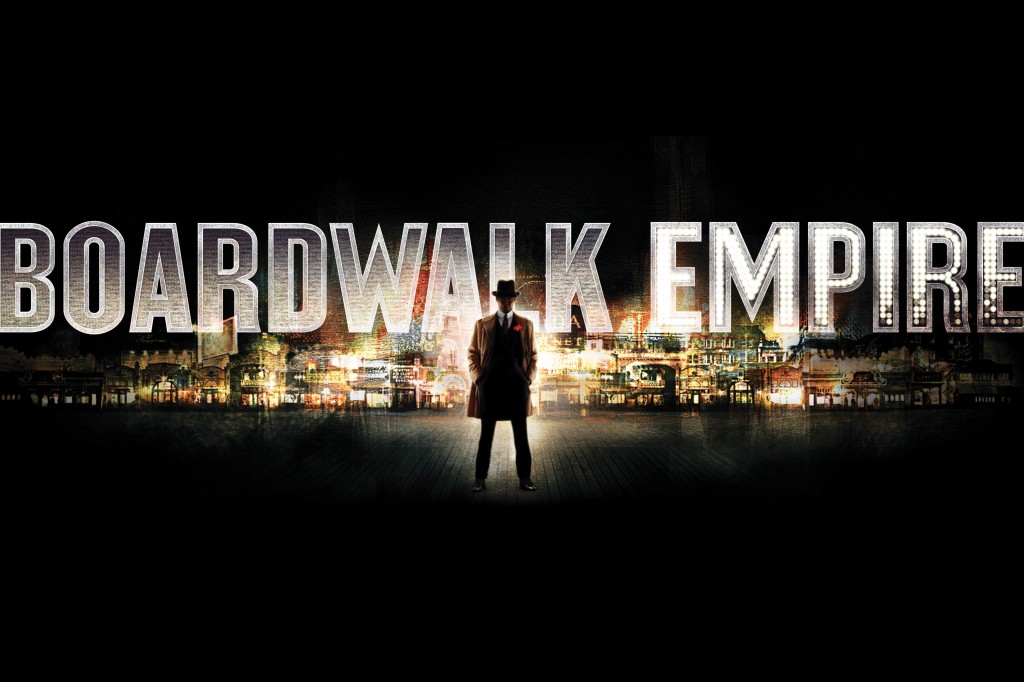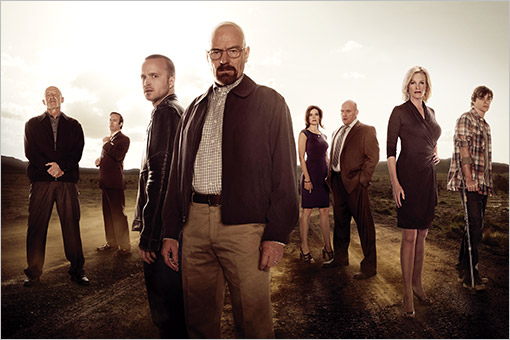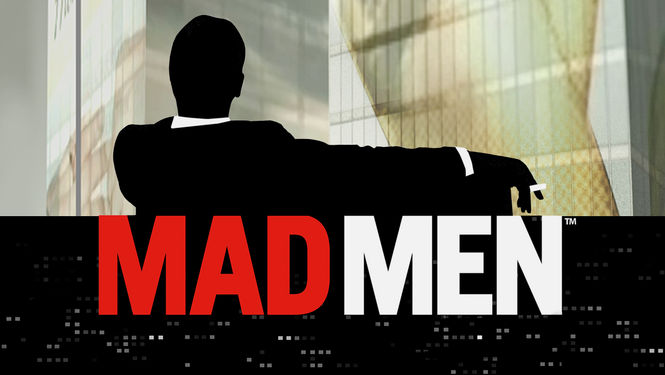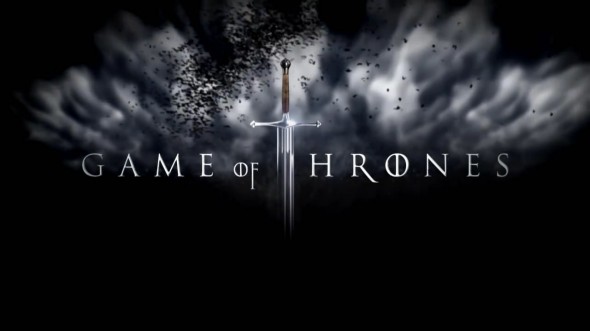There’s only half a season left of Mad Men! We couldn’t mess around and lose our second to last chance to share our favorite words from the show.
brunch
Margaret: “I’d like to have brunch Sunday morning.”
Roger: “Sure, that’d be nice. I’ll bring vodka.”
“Time Zones,” April 13, 2014
While brunch, a combo of breakfast and lunch, may seem like a fad of the 1980s, the word actually originated around 1896 as “British student slang.” According to Google Ngrams, brunch gained a bit of popularity in the 1960s (this episode takes place in 1969) but didn’t really start to take off until the late 1970s.
four Ps
Wayne Barnes: “They pay me to think about the four Ps. Price, product, place, and promotion.”
“Time Zones,” April 13, 2014
The four Ps, or McCarthy’s four Ps, were proposed by marketing professor E. Jerome McCarthy in 1960. The four Ps are part of the marketing mix, a business tool. Also part of the marketing mix are the four Cs, which Robert F. Lauterborn developed in the 1990s: consumer, cost, communication, and convenience.
Hooterville telephone operator
Don: “I didn’t know I was going to get interrogated by the Hooterville telephone operator.”
“A Day’s Work,” April 20, 2014
Hooterville is the fictional town of TV shows Petticoat Junction and Green Acres. The telephone operator was Sarah, says the AMC blog, “the elderly switchboard ‘oppa-ray-TOR’ who tended to turn calls through the town’s antiquated party-line system into a variation on the telephone game.”
leg
Lou: “Why don’t you take us through the legs.”
Peggy: “Let’s start with radio.”
“The Strategy,” May 18, 2014
To be honest, we’re really not sure about the definition of leg here. We’re assuming it’s a broadcasting term, as per the Oxford English Dictionary, “a branch or supplementary network attached to the main network and providing coverage for a particular region,” where each leg is a different form of media (e.g., radio, print, and television).
An idea that “has legs” has staying power.
Longfellow Deeds
Lou: “What am I supposed to do? Just hide while he sits down there cooling his heels like Longfellow Deeds?”
“Field Trip,” April 27, 2014
Longfellow Deeds is the main character of the film, Mr. Deeds Goes to Town. Deeds is “the co-owner of a tallow works, part-time greeting card poet,” and a tuba-player who “inherits 20 million dollars from his late uncle.” He’s considered by some to be a “heartless” and “ultra-rich man, who will not lift a finger to help the multitudes of desperate poor.”
Marriage Encounter
Brooks: “She hasn’t been herself lately, and we went to this Marriage Encounter group.”
Roger: “You’re kidding.”
“The Monolith,” May 4, 2014
Marriage Encounter is a religiously-based program developed in the early 1950s to “help married couples by reason of discovering or re-discovering the need for God in their lives.”
Marriage Encounter was started by Gabriel Calvo, a priest in Spain, while the New York City chapter was held under the guidance of Jesuit priest Charles (Chuck) Gallagher.
Mary Wells
Roger: “You want to walk down some hotel hallway and see Mary Wells sitting on Don’s lap the next time you go in to present?”
“Field Trip,” April 27, 2014
Mary Wells refers to Mary Wells Lawrence, the founding president of ad agency Wells Rich Greene and the first female CEO of a company listed on the New York Stock Exchange. In a previous episode, Don had lunch with an executive from Wells Rich Greene to discuss job prospects.
mess around
Peggy (to Don): “No. Stop messing around. It’s not funny.”
“Waterloo,” May 25, 2014
Here by messing around Peggy means joking or kidding around. This is probably the oldest meaning of the term, originating around 1853, according to the OED. Around 1896, mess around gained the meaning of “to handle roughly” as well as to have sex or an affair with someone.
In the mid-1920s, mess around also came to mean to improvise, especially in jazz music or dance. The Mess Around was “an improvised jazz dance” from the 1920s and 1930s.
retard
Ed: “What if you replaced [the Burger Chef mascot] with a fresh recruit? A saucy little retard named Scout.”
“The Runaways,” May 11, 2014
Retard is an offensive slang term for someone who is mentally handicapped, and by extension, a person thought to be “foolish or socially inept.”
In the early 1900s, says the OED, retard was a clinical term used in education and psychology meaning “a person displaying or characterized by developmental delay or learning difficulties”:
Then there are the backwards, or the retards for their years, and those subnormally endowed in respect to mental gifts, afflicted with physical defects of various kinds and degrees.
It was around 1968 that the term started to be used as derogatory slang for someone mentally or physically deficient.
tag
Peggy: “I want to get started right away. I think, 25 tags should get the ball rolling.”
“The Monolith,” May 4, 2014
Tag is short for tag line, “an often repeated phrase associated with an individual, organization, or commercial product; a slogan.” The Online Etymology Dictionary says tag line originated in 1916 as the “last line in an actor’s speech,” and then as the “punchline of a joke” in 1926. When it gained the meaning of “slogan” in advertising we’re not sure. If anyone has any insight, let us know in the comments!
